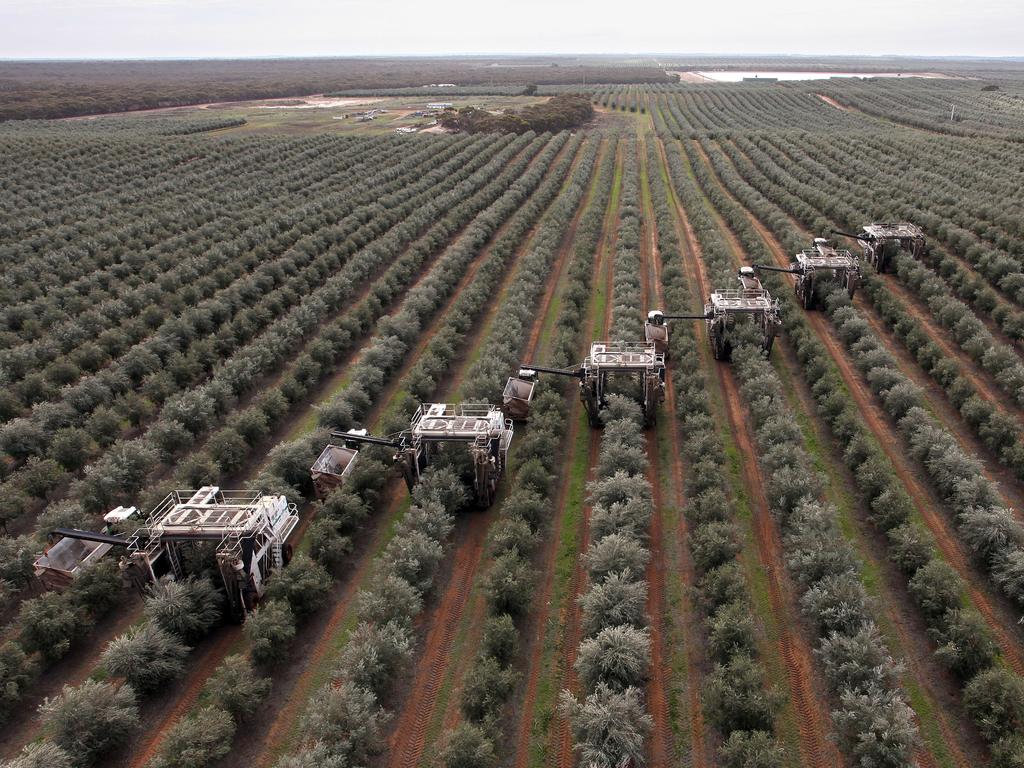Time for Australia to step up as Ukraine war causes food shortage: Anthony Pratt
The time has come for Australia to step up to its responsibility to help feed the world in the wake of the shocks and disruptions to the global food system, says Anthony Pratt.

The time has come for Australia to step up to its responsibility to help feed the world in the wake of the shocks and disruptions to the global food system flowing from Russia’s invasion of Ukraine, according to packaging magnate Anthony Pratt.
In a speech to The Australian and Visy’s 10th anniversary Global Food Forum in Melbourne on Wednesday, Mr Pratt will laud Australia’s unprecedented food export opportunity in what the billionaire calls a “VUCA world” – one that is “volatile, uncertain, chaotic and ambiguous”.
Ukraine is one of the six so-called “food baskets” that supplies three-quarters of the world’s top food commodities and Russia’s invasion of the country has caused catastrophic disruption to international food supply chains.
The global consulting giant McKinsey has warned that the ongoing impact of the war in Ukraine could see 30 million tonnes of international wheat and oil seed supplies disappear in 2022, with flow-on impacts across Africa and other food-fragile regions.
Rabobank warned earlier this month that the war would keep grain and food prices artificially high for at least a year.
“This shortage of wheat, flour and bread risks social unrest like the Arab Spring. Plus the Black Sea is a huge global hub for fertiliser, which will cascade the food deficit to places as far away as Brazil. Fortunately, Australia happens to be one of the world’s big ‘food baskets’,” Mr Pratt will tell the forum, being staged in Melbourne.
“Ten years ago I said Australia had a responsibility to help feed the world – that time has come.
“While a quarter of the world’s wheat, barley and corn are produced in the Ukraine region, fortunately Australian farmers predict record high harvests of wheat, barley and canola – with higher export prices for our produce.”
The historic 10th staging of The Australian and Visy’s Global Food Forum will debate the critical issues facing Australia’s $150bn agribusiness sector and look forward to the next decade of growth.
On Wednesday Mr Pratt will claim that over the 10 years since the first Global Food Forum in 2013, Australian food exports have grown from $29bn to almost $50bn and more than 2000 new food factories have been built across the nation.
The food and beverage sector now makes up 28 per cent of the total value of Australia’s manufacturing output, almost double the next biggest sector. More than 40 per cent of food manufacturing’s 240,000 jobs are in regional Australia.
Mr Pratt will also argue “food as a pharmaceutical” is a huge opportunity for Australia in the Asia-Pacific region, where the booming middle class is demanding better wellness and nutritional products.
“They want the skin of grapes to cure cancer, eating blueberries to boost antioxidants, Greek yoghurt as probiotic for gut health. So our export of safe, nutritious food has become Australia’s greatest contribution to global food security,” he will tell the audience.
The Global Food Forum has also been focused on tackling food waste. Australia wastes an estimated 7 million tonnes of food costing $20bn per year.
One of the nation’s largest food rescue organisations is SecondBite, which was launched in 2005 by former Victorian Liberal Party president Ian Carson and his wife Simone.
In 2011, Coles and SecondBite formed a national partnership which led to a rapid expansion of the organisation’s scale and reach.
According to the supermarket giant’s sustainability and annual reports, Coles has donated record food volumes equivalent to almost 36 million meals to its community partners including SecondBite.
Coles now aims to reduce all its waste to landfill by 85 per cent by 2025, while its rival Woolworths aims to eliminate its food waste to landfill by 2025. Aldi aims to reach the target next year.
“Reducing landfills is one of the most practical, low-cost weapons that ordinary citizens have to fight climate change,” Mr Pratt will say. “Because of methane emissions, landfills emit more greenhouse gases than all of global aviation and, as the Glasgow climate talks highlighted, methane causes 30 per cent of all global warming.
“So tackling food waste not only helps fight poverty and boost farmers’ productivity for better food security, it’s a weapon against climate change.”







